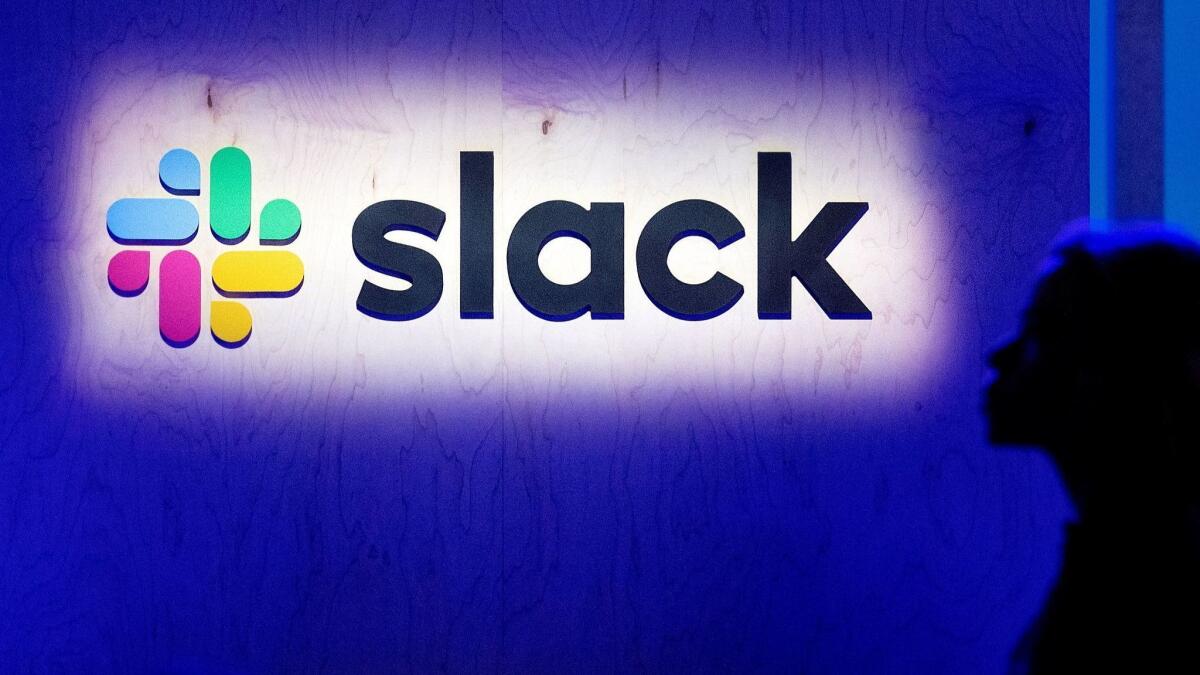Slack files plans to go public, providing a rare look at its sales and losses

- Share via
Slack Technologies Inc. submitted its plans to U.S. regulators to go public through an unusual direct listing.
The workplace-messaging company’s filing Friday confirms its plans to avoid a traditional public offering and instead list its shares directly on the New York Stock Exchange under the symbol SK.
Slack’s filing shows that for the year that ended Jan. 31 it had a net loss of $139 million on revenue of $401 million, compared with a net loss of $140 million on revenue of $221 million a year earlier. The filing gives potential investors their first look at Slack’s sales and net losses. Previously, it has occasionally shared annual recurring revenue and a few other metrics.
The filing also reveals that Slack’s Class B shares have been changing hands in private transactions for as much as $23.41 in the year through January. The lowest price at which they traded during the same period was $8.37.
In private deals in the last two months, shareholders have sold stock at prices as high as $25 or $26 a share, which implies a company valuation of about $16 billion, people with knowledge of the matter have said.
The direct listing will allow the San Francisco company’s investors to sell their shares without their holdings being diluted by Slack issuing new stock or waiting for a lockup period to expire. Such listings are rare. Most companies, including so-called unicorns such as Lyft Inc. and Pinterest Inc. this year, go public to raise cash. But in the last few years, private capital has been easy to come by for technology startups.
Slack is choosing a direct listing because it doesn’t need the cash or publicity of an IPO, a person familiar with the matter has said. The share sale could value Slack at more than $7 billion, the person said. The company was valued at $7.1 billion in a $427 million funding round in August.
Slack had more than 10 million daily active users as of the end of January, including more than 600,000 organizations with three or more users. About 88,000 of them are paying customers, the filing shows.
In a direct listing, a company transfers its shares to an exchange and lets them trade publicly without an underwriter — and without typical underwriter fees. Companies still rely on banks to advise them, though. Slack is working with Morgan Stanley, Goldman Sachs Group Inc. and Allen & Co. on the share sale, according to its filing.
More to Read
Inside the business of entertainment
The Wide Shot brings you news, analysis and insights on everything from streaming wars to production — and what it all means for the future.
You may occasionally receive promotional content from the Los Angeles Times.









